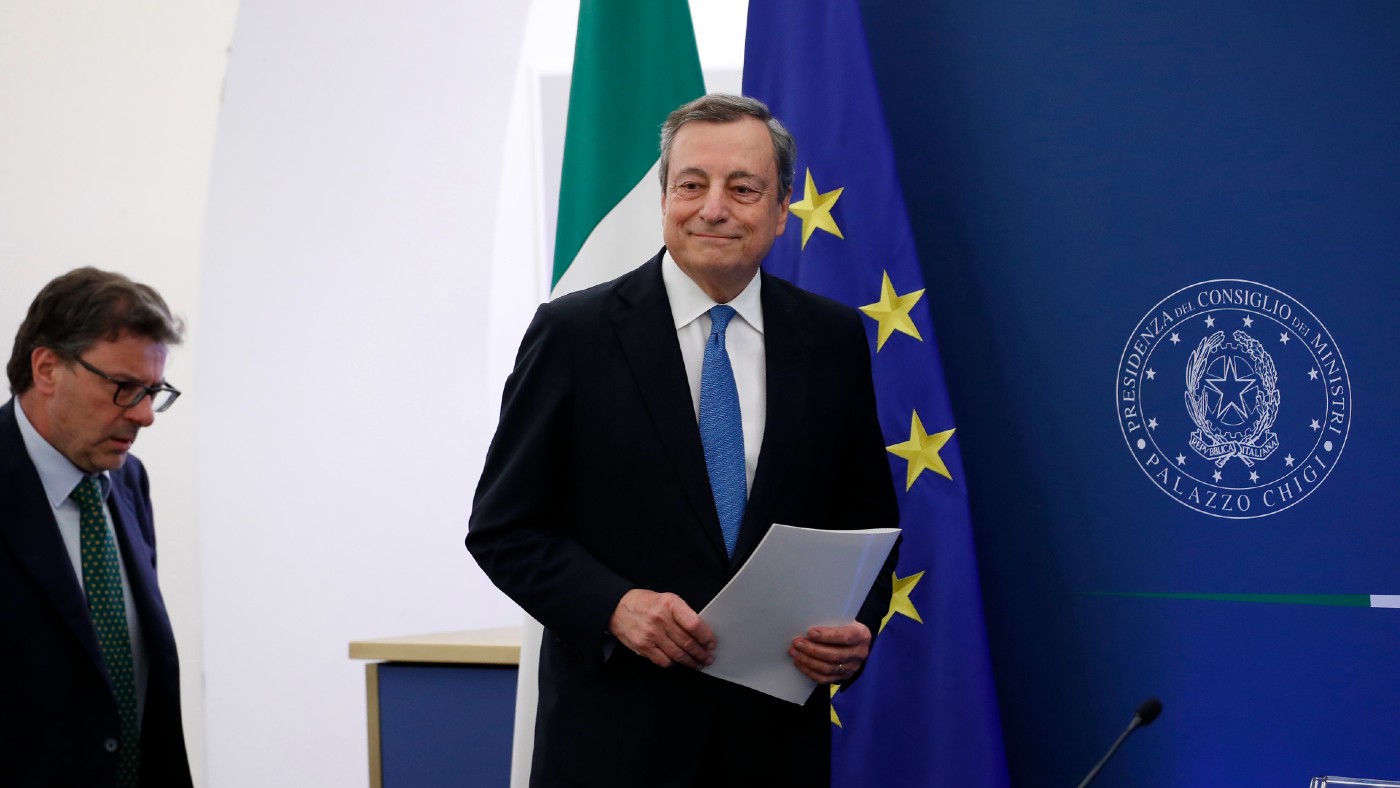Why Italy’s government is at risk of collapse
Political turmoil which saw PM’s resignation rejected could spark an early general election

A free daily email with the biggest news stories of the day – and the best features from TheWeek.com
You are now subscribed
Your newsletter sign-up was successful
The president of Italy has refused to accept prime minister Mario Draghi’s resignation, plunging the country into even deeper political uncertainty.
The development leaves the coalition government “teetering on the brink of collapse”, said The Guardian, and could force early national elections later in the year.
‘Extraordinary developments’
The BBC said the “extraordinary developments” came on a “day of drama” in Rome, which saw Giuseppe Conte, leader of Draghi’s coalition partners Five Star, refuse to back the government’s €23bn (£19.5bn) cost-of-living package of economic aid.
The Week
Escape your echo chamber. Get the facts behind the news, plus analysis from multiple perspectives.

Sign up for The Week's Free Newsletters
From our morning news briefing to a weekly Good News Newsletter, get the best of The Week delivered directly to your inbox.
From our morning news briefing to a weekly Good News Newsletter, get the best of The Week delivered directly to your inbox.
Although the government still won the vote in the Senate with the help of other parties, Draghi had already upped the stakes by vowing that without Five Star’s support the government could not continue.
In a statement, he said that the vote was therefore “very significant from a political point of view” and that it showed “the national unity majority that supported this government since its creation no longer exists”.
Strained relationships
Relations between Italy’s “fractious government coalition partners” have been “increasingly strained in recent weeks”, reported Politico. Last week, Conte handed Draghi a letter saying Five Star had suffered “deep political discomfort” from being part of the coalition.
Reuters said Five Star is “struggling for its survival” because it has “haemorrhaged half of its lawmakers to rival groups and seen its popular support fall by around two thirds” since winning 33% of the vote at the last national election in 2018.
A free daily email with the biggest news stories of the day – and the best features from TheWeek.com
Foreign minister Luigi Di Maio, a former Five Star leader who quit the party last month, said his former party’s leaders have been “planning this for months to put an end to the Draghi government”.
In the wake of the vote, Draghi made two visits to the Quirinale palace yesterday. During the second, he tendered his resignation. The former head of the European Central Bank, who has led a unity government since February 2021, told Italian president Sergio Mattarella that the pact of trust that had sustained the unity government had gone.
However, the president refused to accept his resignation and instead called on Draghi to address parliament to provide a clear picture of the political situation.
‘Improbably broad’ coalition
The day’s drama leaves economist Draghi, who was dubbed “Super Mario” after saving the euro, in a tricky position. The effect of Mattarella’s intervention on the future for Draghi and the nation is “not entirely clear”, said the BBC, and with sufficient support, Draghi “could remain in office”.
Elections were already due early in 2023 and, if the government does collapse, a vote is likely to take place this autumn.
The nation’s political troubles have come as little surprise to many. The Economist described the coalition as “improbably broad”.
Nevertheless, the instability comes at an inconvenient time, with Italy’s government attempting to tackle the energy crisis and secure EU funding. If Draghi stands down, Europe will lose “one of its most experienced leaders at a critical time”, said Politico, with “key decisions looming over the Ukraine war and its economic fallout”.
Chas Newkey-Burden has been part of The Week Digital team for more than a decade and a journalist for 25 years, starting out on the irreverent football weekly 90 Minutes, before moving to lifestyle magazines Loaded and Attitude. He was a columnist for The Big Issue and landed a world exclusive with David Beckham that became the weekly magazine’s bestselling issue. He now writes regularly for The Guardian, The Telegraph, The Independent, Metro, FourFourTwo and the i new site. He is also the author of a number of non-fiction books.